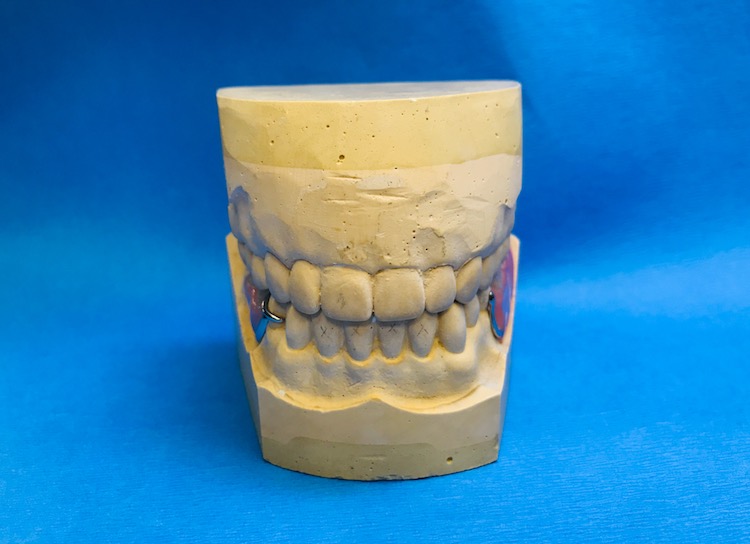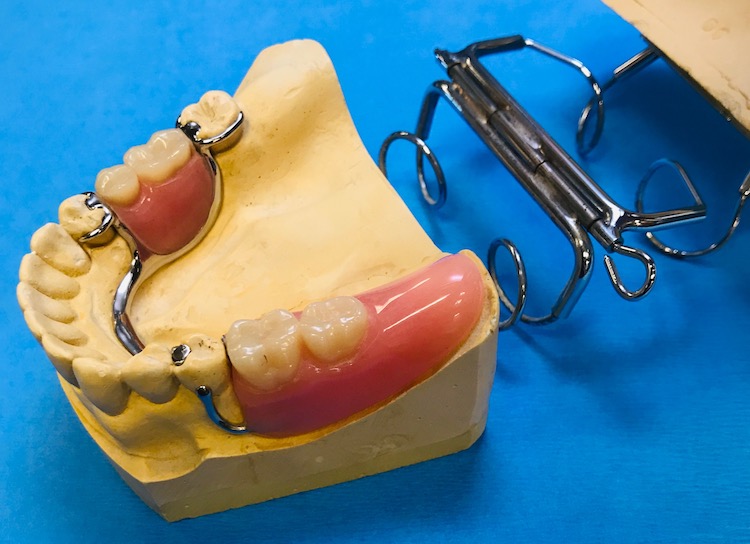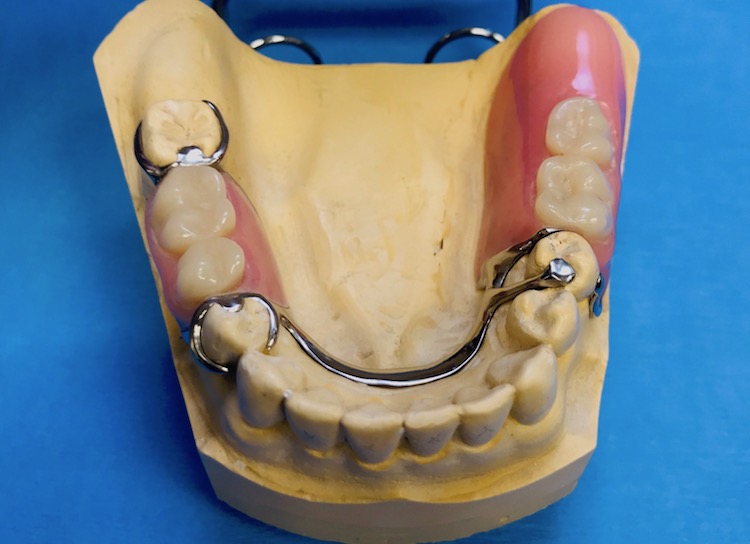DENTURES
Dentures are removable appliances that can replace missing teeth and help restore your smile. If you’ve lost all of your natural teeth, whether from gum disease, tooth decay or injury, replacing missing teeth will benefit your appearance and your health. That’s because dentures make it easier to eat and speak better than you could without teeth—things that people often take for granted.
When you lose all of your teeth, facial muscles can sag, making you look older. Dentures can help fill out the appearance of your face and profile. They can be made to closely resemble your natural teeth so that your appearance does not change much. Dentures may even improve the look of your smile.
TYPES OF DENTURES
- Full Arch Dentures – A full arch denture is a removable tooth replacement option for those who need all of their teeth replaced. They can be crafted to provide the characteristics (tooth shape and color) the patient desires. Advances have been made in the materials used for dentures and in the way they are designed. If you already have dentures (partial or full arch) you may be experiencing a loose fit or denture slipping. This can lead to gum sores, can affect your speech and decrease your confidence when speaking and/or laughing with others. We can help restore your dentures to the correct fit.
- Implant Support Dentures – This prosthesis is used in special situations for patients who have enough bone in the anterior regions of the lower and upper jaws, but a limited amount of bone in the posterior regions and are not candidates for extensive bone grafting.
- Immediate Dentures – This type of denture is made to be placed in the mouth immediately after you have all of your natural teeth extracted. This allows you to leave the office without the embarrassment of having no teeth while the gums heal from the extraction. The denture is made to conform to your mouth at the moment impressions were taken. Your gums will change drastically over the next few months and it is possible that the dentures will rub against the gums causing some soreness until the denture is adjusted. Most patients will require a realignment of their denture within the first few months due to gums shrinking from the extraction of teeth. Another benefit of immediate dentures is the fact that the dentures act as a bandage to the extraction sites which covers the tooth sockets and prevents them from becoming irritated. Just remember never to remove the denture yourself, even for a brief moment unless your dentist has instructed you to. The gums have a tendency to swell when uncovered at first, and if you are without your dentures for a little while, they may never go back in.
- Snap-in Dentures – Implants allow you to wear full dentures and partial dentures without fear that they will slip of fall out. A “snap-in” denture is an implant supported, removable denture. The snap-in feature is available for upper or lower dentures. Having implant supported dentures allows for the base of the denture to be made smaller and more comfortable. Implant supported dentures enhance chewing and speaking. Never again will you have to worry about your teeth falling out when you eat, laugh or speak. You will regain chewing function and enjoy some forgotten food.
- Over Denture – An overdenture fits on top of natural teeth or dental implants. Many patients suffer from ill-fitting and loose dentures that move or even fall out when speaking or eating. One way of solving this problem is to construct a dental plate that goes over and attaches to something underneath it. Keeping a few natural teeth or placing dental implants in the bone under the denture also keeps the jaw bone healthy. This avoids much of the natural jaw bone loss often seen after teeth are removed. Traditional over dentures go over natural teeth. A denture can be made that goes over and attaches to one or both cuspids. Implants supported overdentures fit on top of dental implants. A retainer bar or retention balls are placed on the implants and special attachments are inserted into the denture to grab onto these retention devices. A new method using mini implant dentures is becoming increasingly popular. Mini implants are very thin, long titanium implants that screw into the jawbone. They can be placed and old dentures can often be retrofitted to the implant.
- Partial Dentures – Partial dentures are used to replace missing teeth. Partials have metal hooks that grab onto the neighboring teeth for support. Unfortunately, the hooks have a tendency to loosen up the teeth. Partial dentures have the tendency to break loose and require multiple adjustments throughout the years. On the upper, there is a large piece of metal that goes across the roof of the mouth which can interfere with taste sensation and/or have food collected under it. Additionally, the partial plate can press into the gum tissue and cause sores. The partial dental plate must be taken in and out each day for cleaning. It is certainly not an ideal alternative.
- Tempory Partials – Temporary or interim appliances serve many useful purposes and are often an integral part of a prosthetic treatment plan. These appliances can be designed to be either fixed or removable. This simple appliance is excellent for temporary replacement of front teeth while the patient is waiting for a permanent bridge, a partial, or implants. This removable interim bridge is made of clear vacuum-formed material. The appliance simply snaps into place.



Like your teeth, your dentures should be brushed daily to remove food particles and plaque. Brushing also can help keep the teeth from staining.
- Rinse your dentures before brushing to remove any loose food or debris.
- Use a soft bristle toothbrush and a non-abrasive cleanser to gently brush all the surfaces of the dentures so they don’t get scratched.
- When brushing, clean your mouth thoroughly—including your gums, cheeks, roof of your mouth and tongue to remove any plaque. This can help reduce the risk of oral irritation and bad breath.
- When you’re not wearing your dentures, put them in a safe place covered in water to keep them from warping.
- Occasionally, denture wearers may use adhesives. Adhesives come in many forms: creams, powders, pads/wafers, strips or liquids. If you use one of these products, read the instructions, and use them exactly as directed. Your dentist can recommend appropriate cleansers and adhesives; look for products with the ADA Seal of Acceptance. Products with the ADA Seal have been evaluated for safety and effectiveness.
If you have any questions about your dentures, or if they stop fitting well or become damaged, contact us. Be sure to schedule regular dental checkups, too. The dentist will examine your mouth to see if your dentures continue to fit properly.
